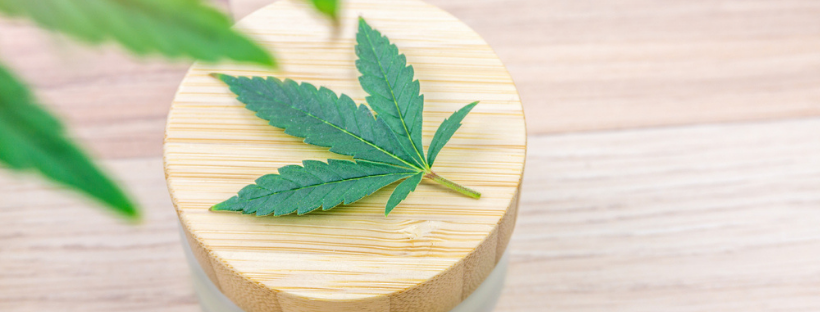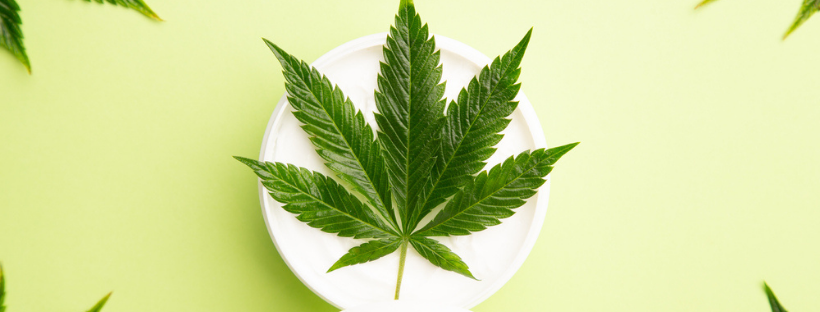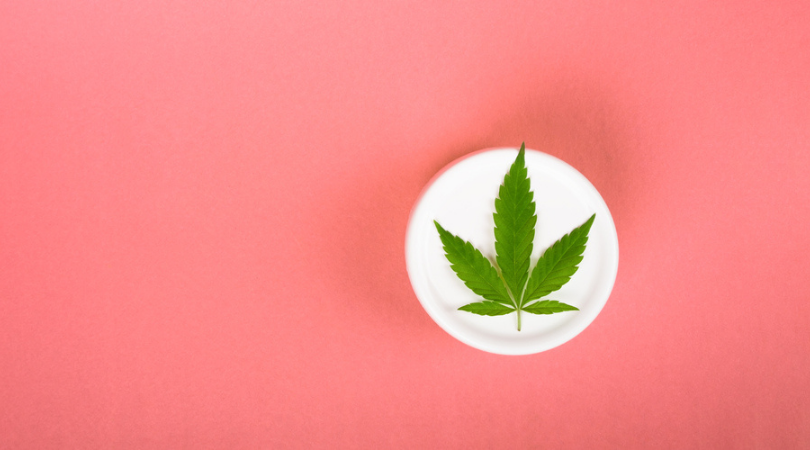With the recent growth of the cannabis industry and the push for legalization, marijuana products have become more widely available in the past few years. Companies are gaining more resources with which to experiment and perfect their products. Along with other marijuana products, cannabis topicals have been rising in popularity. They are a good alternative for those seeking to gain the benefits of marijuana without experiencing its psychoactive properties.
What Are Topicals?
Topicals are marijuana-infused products that are applied directly to the skin. They come in many forms, such as balms, lotions, salves, sprays, and even bath bombs and lubes. Applying topicals does not get you high. Because tetrahydrocannabinol (THC), the main psychoactive compound in cannabis, is not ingested and does not contact the bloodstream, there is no possibility of experiencing psychoactive effects. When you apply topicals to the skin, THC, and cannabidiol (CBD) – the other natural cannabis compound – adhere to fat cells. These fat cells prevent the compounds from entering the bloodstream.

What Are the Benefits of Topicals?
Cannabis topicals have many beneficial properties. Topicals have been used for centuries, as far back as the 1500s. In 1536, French herbalist Ruellius documented his use of cannabis extracts for treating wounds and ulcers. In 1564, German botanist Tabernaemontanus wrote a study citing the benefits of cannabis when used for burns. He recommended an ointment composed of cannabis leaves and butter. Tabernaemontanus also advised women to use cannabis to relieve abdominal pain. In 1649, well-known British herbalist Nicolas Culpeper documented the antiseptic properties of cannabis as a treatment for burns and bleeding.
Some people attest to the effectiveness of cannabis topicals to treat skin issues, joint pain, and muscle soreness. Topicals can moisturize the skin and can be great for chapped or brittle skin. You may use cannabis creams and lip balms during the winter months to avoid skin damage.
Topicals might also help protect the skin from aging and sun damage because of the antioxidant qualities in THC and CBD. CBD contains amino acids and fatty acids that are beneficial to the skin. Amino acids are the building blocks of protein, and they make up collagen in the skin. Fatty acids are the building blocks of fats and make up the skin’s natural oils.
Some have reported success using topicals for skin issues such as acne and contact dermatitis. Cannabis topicals may also alleviate symptoms such as itching and pain. Their anti-inflammatory properties may be helpful for swollen joints and twists or sprains.
They might also be a good option for those looking for an alternative or supplement to painkillers and other traditional medications. When choosing a topical for muscle or joint pain, consider choosing one with both CBD and THC. Topicals containing both CBD and THC can be a great option as CBD contains additional beneficial properties.
CBD and THC share several benefits, such as anti-bacterial properties. CBD has demonstrated anti-viral potential as well. Both compounds help with inflammation and have similar chemical structures. They also have individual differences and synergize when combined. THC has powerful pain relief qualities, and CBD has potent anti-inflammatory qualities. CBD may even help patients with epilepsy because of its anti-epileptic properties. Unlike THC, though, CBD does not have any psychoactive properties.
Other Uses of Topicals
You could also use topicals for joint issues such as arthritis. Balms or salves are usually a good choice for these issues since they tend to be potent and formulated for pain relief. A 2015 study found that transdermal CBD application reduced joint swelling in arthritic rats. Unfortunately, because marijuana is not yet federally legalized, human studies have been limited. Animal studies are unnecessary for studying these compounds, as they are safe for humans.
Transdermal products containing CBD do not get you high. Transdermal products containing THC, however, do get you high. Transdermals can be applied as a patch over a vein, much like a nicotine patch. This application allows the THC to enter the bloodstream. Transdermals are a lesser-known method of utilizing cannabis but are a great choice if you’re looking for psychoactive effects.
You can even use cannabis to make your topicals at home. The process is relatively simple and involves infusing cannabis into oils or salves. If you have ever made an extract or infused an edible, you likely already have a handle on the process, which you can do right in your kitchen.
When selecting your topical, make sure to find one specifically formulated for your issue. If you are treating acne, choose a topical made for the face. For pain relief, choose a product with decent potency containing both CBD and THC.

How Do Topicals Work?
Cannabis-infused topicals work by binding to cannabinoid receptors in the body. The body’s endocannabinoid system consists of endocannabinoids, receptors, and enzymes. Endocannabinoids first bind to and activate cannabinoid receptors. Then, enzymes break down the endocannabinoids after this process. The ECS helps the body maintain homeostasis by regulating sleep, mood, appetite, reproduction, and other functions. The body naturally has a system that is complementary to cannabinoids, which is why topicals can be so effective.
The body contains two main endocannabinoids, one of which is called anandamide. Anandamide has a very similar chemical structure to THC and is nicknamed “the bliss molecule.” After an injury, anandamide levels in the body rise to soothe the injured tissues. There are two types of cannabinoid receptors, called CB1 and CB2. THC and anandamide both bind to the CB1 receptor. CBD, like THC, binds weakly to the CB2 receptor but does not bind to the CB1 receptor. Its main mechanism of action occurs independently, and it acts mainly through other systems in the body.
Why Choose Topicals?
Topicals are ideal for anyone looking to get the benefits of cannabis without ingesting, smoking, or vaping it. Topicals are claimed to provide a practical solution for treating inflammation and pain and can be used by anyone.


